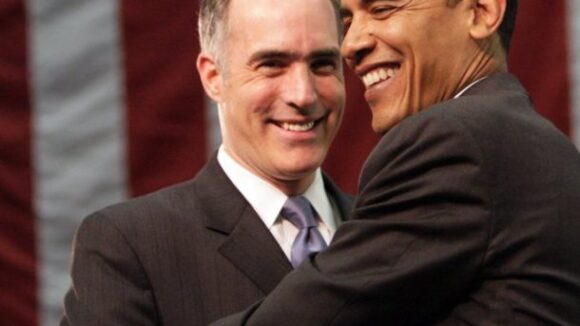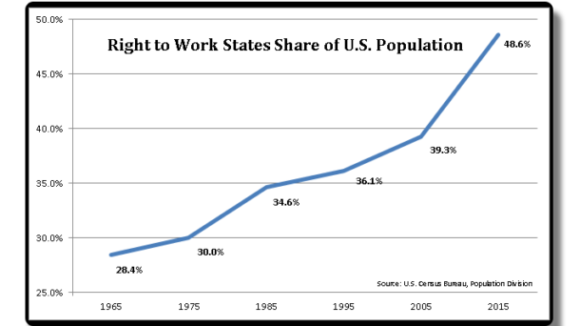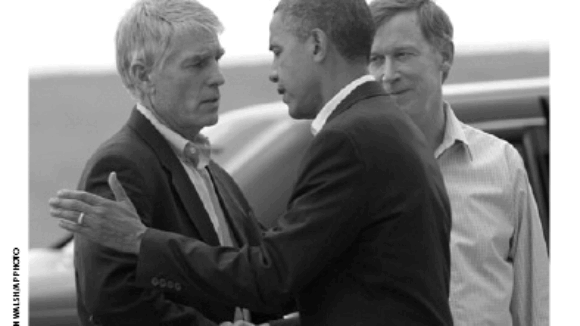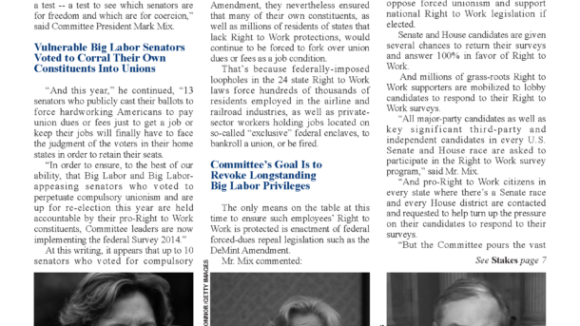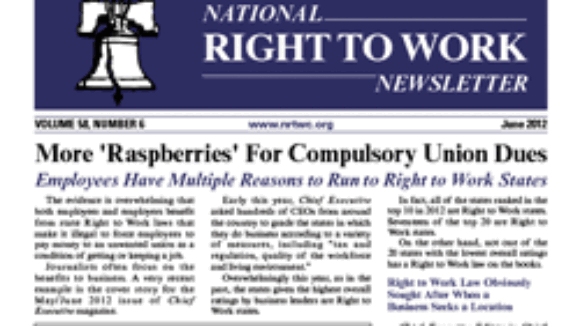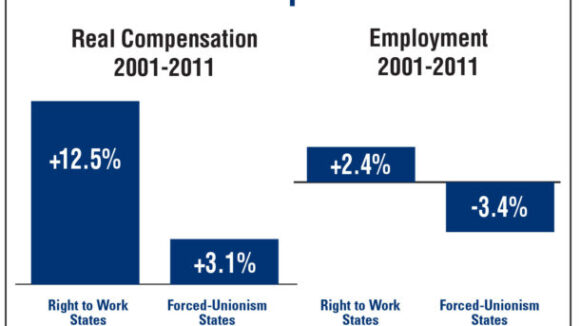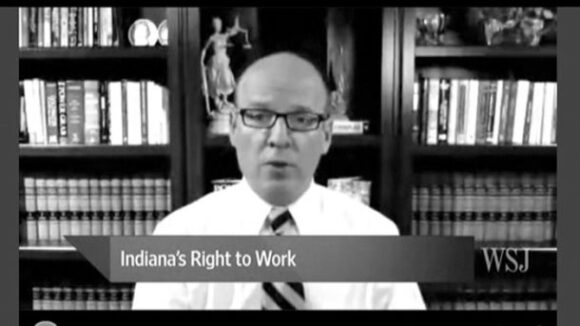Sen. Jim DeMint -- Pro-Freedom
The Senate's premiere champion of worker's rights, Sen. Jim DeMint, outlines his support for a balanced approach to labor law. From Greenvilleonline.com:
When people ask me if I’m pro-business or pro-labor, I say I’m neither: I’m pro-freedom.
Freedom is the only political principle that cannot be bent to serve special interests. Remember how 7-Up used to call itself the un-cola? Well, freedom is the un-special interest.
Freedom, protected by the Constitution and the rule of law, works for everyone. It allows everyone — left or right, young or old, rich or poor — to make their own choices according to their own values.
Government’s job shouldn’t be to tilt the field for one team or another, but to guarantee a level playing for everyone.
That’s why I’m against forcing workers to join unions, congressional earmarks for favored groups, government bailouts of Wall Street, and energy subsidies — both for oil companies and for green energy.
Freedom isn’t perfect, but it is fair. And any time government hands out favors, they’ll be unfair to someone.
When Washington picks winners and losers, in the end taxpayers always lose, and Ex-Im is no exception.
